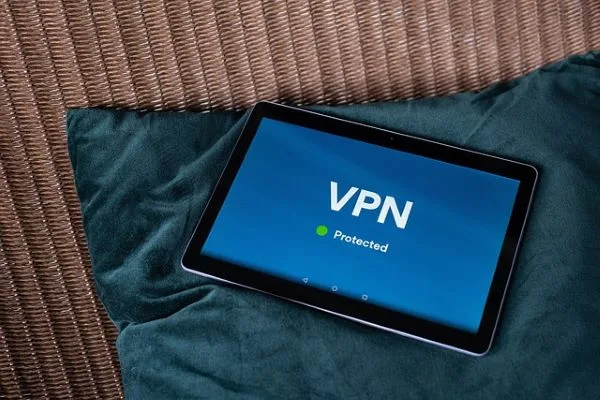8 Internet Security Improvements You Should Consider to Keep Your Data Safe

Data breaches, identity theft, malware attacks, and phishing scams are just a few of the threats that individuals and businesses face online. As technology evolves, so do the methods employed by cybercriminals to exploit vulnerabilities and gain unauthorized access to sensitive information. Now more than ever, it is crucial to be proactive in safeguarding our data and online privacy. Fortunately, you can make several key improvements to enhance your internet security and keep your data safe.
1. Utilize a VPN for Enhanced Privacy and Access
Using a Virtual Private Network (VPN) effectively enhances your online privacy and security. A VPN creates a secure and encrypted connection between your device and the internet by routing your internet traffic through a remote server. This masks your IP address and encrypts your data, making it difficult for hackers or third parties to track your online activities.
Additionally, a VPN can provide greater accessibility, especially for streaming platforms like Netflix. Read this VPN guide for Netflix to help choose a VPN that can bypass geographic restrictions and access content that may be limited. For example, you may want to access a specific show or movie available on Netflix US but not in your country. In that case, you can connect to a VPN server in the US, effectively tricking Netflix into thinking you’re accessing from that location.
2. Strong and Unique Passwords
A strong password should combine upper and lowercase letters, numbers, and special characters, making it difficult for hackers to crack. Avoid using easily guessable information such as birthdays or pet names. Creating unique passwords for each of your online accounts is crucial to prevent a domino effect if one account is compromised.
Remembering multiple complex passwords can be challenging, but using a password manager can simplify this process by securely storing all your passwords in one place. By prioritizing strong and unique passwords, you build a solid foundation for safeguarding your online presence and keeping your sensitive information out of the wrong hands.
3. Two-Factor Authentication (2FA)
With 2FA, accessing your online accounts requires a password and an additional verification method. This can be a unique code sent to your mobile device, a fingerprint scan, or a hardware token. By enabling 2FA, even if an attacker obtains your password, they would still need the second factor to gain access.
This extra layer of security significantly reduces the risk of unauthorized access and provides an additional barrier against potential cyber threats. It is recommended to enable 2FA on all your important accounts, such as email, social media, and financial platforms, to enhance your overall online security posture.
4. Regular Software Updates
Regularly updating your software is a crucial aspect of maintaining robust internet security. Software updates often include essential security patches that address known vulnerabilities and weaknesses that cybercriminals can exploit. Ignoring these updates can leave your devices and applications susceptible to attacks.
You promptly install software updates to ensure that your operating system, web browsers, and other software have the latest security features and improvements. It is advisable to enable automatic updates to streamline the process and protect you against emerging threats.
5. Secure Wi-Fi Networks
Your router’s default settings often come with generic passwords, making them vulnerable to unauthorized access. To protect your Wi-Fi network, change the default password to a strong, unique one. Additionally, ensure that your router uses robust encryption protocols such as WPA2 or WPA3. These encryption methods provide an added layer of protection against eavesdropping and unauthorized access. It is also essential to regularly update your router firmware to ensure it has the latest security patches.
6. Safe Browsing Habits
Developing safe browsing habits is essential in protecting yourself from online threats and maintaining internet security. Cybercriminals often use deceptive tactics, such as phishing scams and malicious websites, to trick unsuspecting users into revealing sensitive information or installing malware.
Exercise caution when clicking on links or downloading files from unknown sources to mitigate these risks. Verify the authenticity of websites before entering personal information, ensuring they have secure connections (look for “https” in the URL) and are from reputable sources.
7. Data Encryption
Encryption converts your data into an unreadable format that can only be deciphered with a specific key or password. When transmitting sensitive information over the internet, it’s crucial to ensure it is encrypted. Look for websites that utilize SSL/TLS protocols, indicated by the “https” in the URL, as it guarantees a secure connection for data transfer. Furthermore, consider using encryption tools or software to protect files and folders stored on your devices. This ensures that even if your data falls into the wrong hands, it remains inaccessible without the encryption key.
8. Leverage Live Scan Fingerprinting for Secure Authentication
Live scan fingerprinting is a modern method of biometric identification that uses electronic capture of fingerprints. This technology offers a high level of security by providing a unique identifier for every individual, making it nearly impossible to duplicate or forge. Implementing live scan fingerprinting for access control to highly sensitive information or locations ensures that only authorized personnel can gain entry. Furthermore, it can be integrated into a broader security system, including digital signatures and encryption, to enhance overall data protection and access management. With professional Fingerprint Services, implementing live scan fingerprinting for your organization is simple and efficient. Whether you need to perform background checks or secure access to sensitive data, live scan fingerprinting is an excellent option to consider.
As the digital landscape continues to evolve, prioritizing internet security is paramount. By implementing these improvements and adopting a proactive mindset toward online safety, you can significantly reduce the risk of falling victim to cyber threats. Remember, protecting your data is a continuous effort that requires staying informed about emerging threats and adjusting your security practices accordingly. Stay vigilant, educate yourself, and take the necessary steps to safeguard your digital life.






